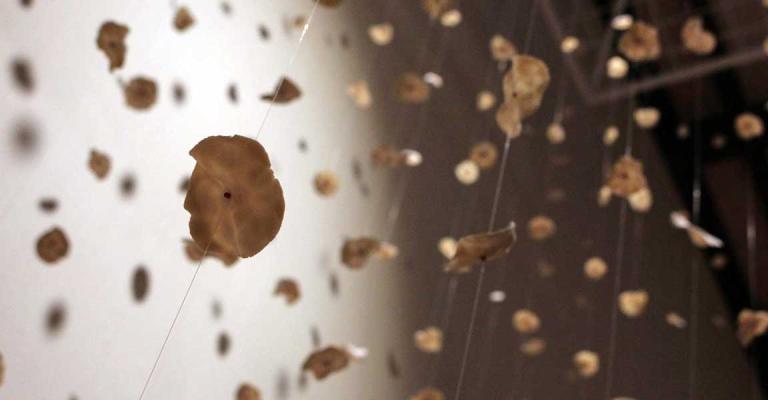Resources
Departmentof Art Student Online Store
For student convenience, several items are available for purchase through The Department of Art Student Online Store. Once items are purchased, present your receipt to either
Leigh McTaggart or Aimee Graham to arrange pickup. For certain items, such as used paintings, it may be necessary to check inventory prior to purchase. Please contact Aimee or Shannon to do so.
Practical FAQs
The Financial Aid Office is located 1st floor, Salazar Hall, phone 707-664-2389. Most students who have not applied for financial aid when they apply for admission to the university will want to visit the Financial Aid Office to inquire about deadlines for grants and the various options available to them. Once you have filed a financial aid application you should check regularly if you do not receive word back from them in a timely fashion. Some students will qualify for Work Study funds.
Several Work Study positions exist in the Department, providing students with work opportunities in the Gallery, Tool Cribs, Slide Room and Art Office which relate to their major. In addition, there are many scholarship possibilities for Art Students including several departmental scholarships. (The Les and Alexis Brooks Scholarship; the Boyle Scholarship for Study Abroad; the Art Department Scholarship and others). The deadline for applying for academic scholarships occurs early in each Spring Semester. You will need 3 letters of reference from faculty familiar with your work. You will also be asked to write an essay describing why you want a scholarship, what you have accomplished, and your goals after college.
Any student enrolled in an art class is entitled to a locker on a first-come first-serve basis. You should select a locker (one only) and place a padlock of some sort on it. You should then go to the Tool Crib (Art 113) and inform the technician, or student working there, which locker you have chosen. It is advisable to choose a locker close to the studio area for your emphasis. These lockers are cleaned out at the end of the year. Notices will be posted advising you to clear out your locker toward the end of Spring Semester.
Some classes require a "lab fee" which is paid at the time of registration. (Keep your receipt throughout the semester.) This fee covers the cost of materials and supplies which you will receive in the classroom (e.g. printmaking inks, welding supplies, photography chemicals, clay). This fee is actually a "good deal" since you generally receive more materials and supplies than you could purchase on the outside on your own for the amount of the fee.
Several options are available for help outside the classroom. For studio majors you will want to sign up for ArtS 199 (lower division) or ArtS 399 (upper division) weekend studio courses. These will provide you with access to the facilities on the weekends. Advanced studio students are available to open rooms and oversee activity within the building. If you are an advanced student you may want to sign up to keep the building open. Units through our ArtS 300/301: Student Assistantships are available on a CR/NC basis.
If you are having trouble in your art history survey courses you should enroll in the ArtH 199 section (1 unit CR/NC) of your ArtH 210 or ArtH 211 class. An advanced art history major will conduct a review and answer your questions on a weeky basis. Some modern art history classes have study sections available under ArtH 399 (1 unit Cr/NC). These are also taught by advanced students in the department. Generally, students who enroll in these sections improve their grades dramatically.
The Tutorial Program is located in the Learning Center, Salazar Hall 1040, phone (707) 664-2429. The Tutorial program provides free tutoring for a large variety of SSU courses. These services are available to all registered students during the daytime and some evening hours. We have had art history tutors available in the past. Check with the Learning Center. Drop-in Tutoring is also available for some of the science, math and writing courses through Salazar Hall 1040, the Residence Halls and the Schulz Library. Check the Learning Center for more specific information. If you are interested in becoming a tutor, check with the Tutorial Program (664-2429) for more information. These are paid jobs.
Foundation courses are the building blocks for the major. You take these courses before or simultaneously with beginning courses in your major. A core course is required of all students for the emphasis in the major. After the core requirements are complete, there is some latitude for students to take courses in related areas for breadth. Each program outlines these different requirements in the catalogue.
Some tools and supplies will be available in the tool cribs located in the sculpture courtyard and in the photography area. Our insurance requires that you must be enrolled in art classes and have completed the safety course to check out tools or use departmental equipment. Some supplies required by your studio courses will be available in the tool cribs. Other supplies may be found in the University Bookstore (although their prices are not competitive with larger art supply outlets.)


